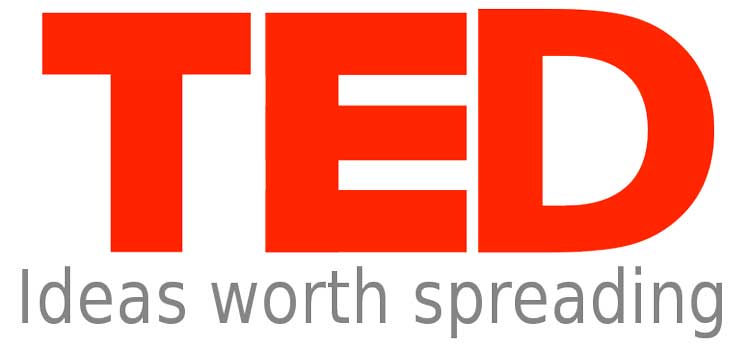Why are we suggesting these eight TED Talks for camp directors? Picture it now: a lovely spring day, a shady tree, and hours upon hours to read a book full of great advice. Then a long meandering walk home through a beautiful park while listening to your favorite hour-long podcast.
Snap back to reality where your schedule rarely permits these options, despite your desire for helpful expert guidance. In under 20 minutes, these eight TED Talks for camp directors can fill that need.
Knowing how busy you are, we sifted through thousands of talks, and handpicked this list. There are lessons to impart onto children, and lessons children can teach adults. There are strategies for supporting camp staff, and for working with children with special needs. Plus, advice for overcoming fear, and having realistic expectations for workplace authenticity.
What we especially love about these talks is that they’re not specifically about summer camp, yet the stories and advice shared by the experts will resonate with camp directors.
To Raise Brave Girls, Encourage Adventure – Caroline Paul
Caroline Paul has had many adventures. She tried to set a world record for crawling the longest distance, worked as a firefighter in San Francisco, and regularly paraglides off mountains. Her belief is that this takes bravery, and that we are doing a disservice to girls by raising them to be timid.
In her talk she says, “Bravery is learned, and like anything learned, it just needs to be practiced. So first, we have to take a deep breath and encourage our girls to skateboard, climb trees, and clamber around on that playground fire pole.”
As camp directors you can upend this socialization by practicing bravery as well. As she explains, “I get that adults don’t want to get on hoverboards or climb trees, so we all should be practicing at home, in the office and even right here getting up the guts to talk to someone that you really admire.”
Get Comfortable with Being Uncomfortable – Luvvie Ajayi Jones
Luvvie Ayaji Jones begins her TED talk by recounting her personal academic and professional journey, and it’s something many people can relate to. She tested the waters, failed at some things, and took a few wrong turns until she discovered her purpose. One thing she learned in the process is a key point in her talk. “Fear,” she says, “has a very concrete power of keeping us from doing and saying the things that are our purpose.”
She now describes herself as a ‘professional troublemaker,” and she argues that her role, and that of others like her, is to help make sure that other people are being heard in situations where they are afraid to speak up. It’s a powerful reminder of the ability you have as a camp director to empower every person on your staff to speak up and make a difference in your camp and in campers’ experiences. That’s why this makes the list of our favorite TED Talks for camp directors.
How I Climbed a 3,000-foot Vertical Cliff—Without Ropes – Alex Honold
Alex Honnold’s famous free-solo climb of El Capitan in Yosemite National Park made headlines. There’s also a great documentary that tracks his experience. His TED Talk does focus on this experience—his preparation, key moments, and how it felt to reach the top.
His larger point though is about conquering fear, and one of his strategies is to visualize success. He says, “Doubt is the precursor to fear, and I knew that I couldn’t experience my perfect moment if I was afraid. I had to visualize and rehearse enough to remove all doubt.”
Running camp may not have the life and death consequences of one of the most challenging climbs in the world, but you are responsible for the health and well-being of many children. Visualizing a successful summer (and being grateful that you don’t have to do it 3,000 feet up) can help.
An Innovative Way to Support Children with Special Needs – Billy Samuel Mwape
Billy Samuel Mwape is a computer programmer and the father of a son with Cerebral Palsy. In his TED Talk, he explains how he and his wife implemented the “Agile” approach he uses at work to help their son. They found experts to guide them, created a sprint system focusing on different parts of his body at different stages, and set specific goals.
Their son Lubuto has had many successes, in part due to his family’s access to these support systems. Mwape knows that not every family with a child with special needs has this access, but he says, “I want to remind you that, in striving for bigger goals, dare to take small sprints. These sprints are usually far from excellent themselves, but they add up to magnificent results.”
You have to support many campers with a variety of needs, and learning from Mwape’s experience is a helpful reminder that you can work with these children toward small successes, without feeling like you have to make sweeping advances in just a few weeks.
The Myth of Bringing your Full, Authentic Self to Work – Jodi-Ann Burey
Jodi-Ann Burey explains that the call for authenticity at work “signals that this place could be the place to safely shed the guise. We could collect the parts of ourselves we’ve compartmentalized and trust that our differences will be seen as assets, not liabilities.” The reality for her, and people of color in general, is that biases make this extremely difficult. When she tried to be her full self, she was told that her approach made her challenging to work with, leaving her overlooked for raises and promotions.
Her main point is that instead of asking marginalized people to do the work of authenticity, those with the power need to make that shift instead. Her suggestion is to, “make working effectively across racial and cultural differences a core competency in hiring and performance management for everyone.”
While there are likely to be things that unite your staff, including a love of summer camp, leaders do need to understand that there are biases in every workplace, and that it takes work to try and overcome them. It’s a complex topic, but Jodi-Ann does an excellent job of presenting it in a short time in this TED Talk.
How your Brain Responds to Stories – and Why they’re Crucial for Leaders – Karen Eber
Karen Eber begins her TED Talk by explaining that stories are a great way for leaders to connect with their employees, because they help envision what they would do in a specific situation. She also believes that many leaders don’t use the story approach because they think that it’s in opposition to using data to get results.
According to Karen, storytelling and data are powerful tools to use in connection with each other because, “they come together in this way to help build ideas, to help you see things you can’t unsee. To help communicate what’s valued and to help tap into that emotional way that we all decide.”
For camp directors, it’s hard to imagine a better to vehicle than stories to help your camp staff walk through various real-world camp scenarios.
What Kids can Teach Adults About Asking for Help – YeYoon Kim
YeeYoon Kim is a former kindergarten teacher, and she says that while she learned many lessons from her students, the most important one was the power of asking for help.
She talks about a feeling that many of us have experienced, where she felt like a failure when asking for help. This is something she struggled with both personally and professionally. Looking back at her time as a teacher, she recalled that one of the most profound experiences she had was when one of the more independent children reached out to her for assistance.
She explains that, “Being asked for help is a privilege: a gift for you to do something for someone, especially when it’s coming from their place of vulnerability.” As camp leaders, it’s important to remember that your camp community is there for you, and something as simple as reaching out can be incredibly powerful to everyone.
Be an Artist Right Now – Young-ha Kim
To be a camp director you have to be creative and think outside of the box. Still, running camp year after year, it is possible to get into a routine. To keep schedules the same, to run the same activities, and to focus on the same growth opportunities and lessons.
In Young-ha Kim’s TED Talk, he encourages everyone to get creative by tapping into their inner child, an approach that can definitely work in the camp environment. “Art is about going a little nuts and justifying the next sentence, which is not much different from what a kid does,” he says. The Korean novelist recounts his own memories, as well as examples of famous artists, and says that everyone has an inner artist and can unleash their own creativity.
This isn’t to say that you shouldn’t do what works at your camp. Just that the opportunity to step outside the norm and try new things can benefit you, your community, your staff, and your campers. As Kim puts it, “the ideal future I imagine is where we all have multiple identities, at least one of which is an artist.”
Start your TED-ucation

There’s joy in the days that have a slower pace, with extra time to learn new skills and get camp inspiration.
For the busier more action-packed times, we think TED Talks are a valuable resource to add to your tool box. We hope these eight TED Talks for camp directors give you new ideas and strategies packed into short videos that you can fit into even the busiest of schedules. Let the TED-ucation commence!
